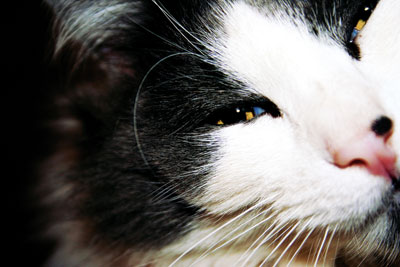All Nonfiction
- Bullying
- Books
- Academic
- Author Interviews
- Celebrity interviews
- College Articles
- College Essays
- Educator of the Year
- Heroes
- Interviews
- Memoir
- Personal Experience
- Sports
- Travel & Culture
All Opinions
- Bullying
- Current Events / Politics
- Discrimination
- Drugs / Alcohol / Smoking
- Entertainment / Celebrities
- Environment
- Love / Relationships
- Movies / Music / TV
- Pop Culture / Trends
- School / College
- Social Issues / Civics
- Spirituality / Religion
- Sports / Hobbies
All Hot Topics
- Bullying
- Community Service
- Environment
- Health
- Letters to the Editor
- Pride & Prejudice
- What Matters
- Back
Summer Guide
- Program Links
- Program Reviews
- Back
College Guide
- College Links
- College Reviews
- College Essays
- College Articles
- Back
Animal Experimentation
An estimated amount of 50 to 100 million vertebrate animals worldwide are used for animal testing, also known as in vivo testing. Some scientists and animal rights organizations, such as PETA and BUAV, question the legitimacy of it. Arguing that it is cruel, poor scientific practice, poorly regulated, that medical progress is being held back by misleading animal models, that some tests are outdated, that it can not reliably predict effects in humans, that the costs outweigh the benefits. Although animal testing is harmful it does have some upsides to it.
Animal testing includes pure research such as genetics, developmental biology, behavioural studies, as well as biomedical research, xenotransplantation, drug testing and toxicology, which includes cosmetics testing. Sources of the animals used for testing vary between countries and species; while most animals are purpose-bred, others are caught in the wild or supplied by dealers who obtain them from auctions and pounds. Most of the animals euthinized after being used in an experiment.
The upsides of in vivo testing do exists, but do not out weigh the downsides. Supporters of the practice, such as the British Royal Society, argue that virtually every medical achievement in the 20th century relied on the use of animals in some way, with the Institute for Laboratory Animal Research of the U.S. National Academy of Sciences arguging that even sophisticated computers are unable to model interactions between molecules, cells, tissues, organs, organisms, and the environment.
I believe that animal testing, such as using rats and chimpanzees to research about cures for human diseases, is wrong. Most of the animals are treated inhumanly, and suffer through the experiments. Even though using animals to help cure diseases for humans is helpful the the human population, killing innocent animals is wrong. Animals have an intrinsic right not to be used for experimentation.

Similar Articles
JOIN THE DISCUSSION
This article has 0 comments.